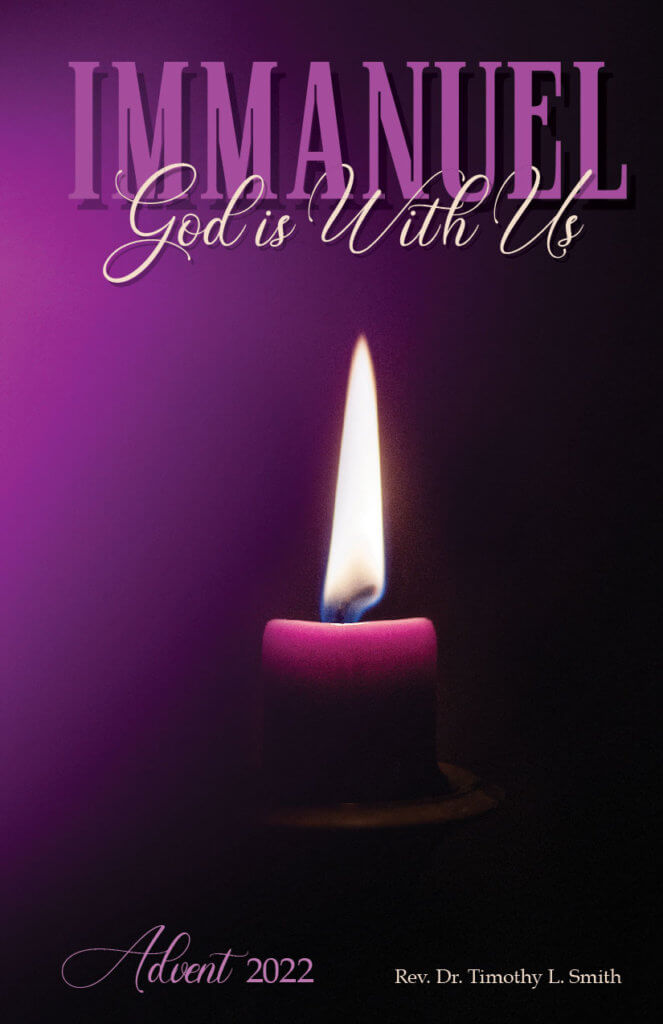PREPARATION: lighting the candle and readying myself to listen.
REFLECTION:
But when the goodness and loving-kindness of our Savior appeared, he saved us, not because of any works of righteousness that we had done, but according to his mercy, through the water of rebirth and renewal by the Holy Spirit. This Spirit he poured out on us richly through Jesus Christ our Savior.
Titus 3:4-6
The Christmas of 1747 was a dark time for Moravian Christians in Marienborn, Germany, as they faced religious persecution. Wanting to proclaim the light of Immanuel’s presence, Pastor John de Watteville created a candle-lighting service that he called “Christingle”. (German: “Little Christ Child”) Each child in his church was presented with a lit candle with a red ribbon around its base, representing the blood of Christ for the world. In time, the candle with the red ribbon was inserted into an orange, symbolizing Jesus’ love going round the world. The Christingle service was so meaningful that when Moravian Christians immigrated to America, they brought the Christingle service to their new settlements in Bethlehem and Nazareth, Pennsylvania, and Salem, North Carolina.
It is Immanuel’s shed blood and love for the world that the apostle Paul celebrates in today’s scripture. He recounts how on that first Christmas, “when the goodness and lovingkindness of our Savior appeared, he saved us.” Strikingly, the Greek word translated “loving-kindness” is philanthropia (philos + anthropos), meaning “love for humanity.” Notice here “the goodness and lovingkindness of our Savior…” John’s Gospel tells of the Word becoming flesh and dwelling among us, the very embodiment of God’s goodness and loving-kindness (John 1:14). As Martin Luther expressed it in a Christmas Day sermon, “How could God have shown his goodness in a more sublime manner than by humbling himself to partake of flesh and blood?” (Martin Luther, The Sermons of Martin Luther, Volume 1)
The Greek word translated “loving-kindness”, philanthropia, is a rare word in the New Testament, denoting more than just love, but a love for all humanity (philos “love” + anthropos “humanity”). God’s saving love truly reaches round the world, as God “desires everyone to be saved and to come to the knowledge of the truth” (1 Timothy 2:4). Thus, John’s Gospel proclaims, “For God so loved the world that he gave his only Son…”. The herald angel told the shepherds the breadth of God’s love for everyone: “Do not be afraid; for see I am bringing you good news of great joy for all the people” (Luke 2:10). Here is God’s goodness and lovingkindness, ready to forget Himself and empty Himself that He might save the world. Theologian C. Baxter Kruger wondered at such astonishing good news:
“In no other religion do we have a god who stoops, a god who comes down to enter human history in the most inconceivably personal way. But here in Christianity, we have a God who wants to be united with us and who is prepared to humble Him- self and even to suffer to accomplish such a union.” (C. Baxter Kruger, Jesus and the Undoing of Adam)
Paul is careful to emphasize that God has saved us, “not because of any works of righteousness we had done, but according to his mercy.” It is all because of God’s mercy! We can do nothing to earn or deserve it. Here is rest for tired people, burned out on religion and moralism, as God humbly comes to us and waits to be loved by us.
Once, a man burdened by his sins was lamenting to Saint Augustine. “Man”, said Augustine, “look away from your sins and look to God.” (William Barclay, Letters to Timothy, Titus, and Philemon) What more wonderful time than Christmas to look away from ourselves and look to Immanuel, who is rich in mercy. For as the angel said, “you are to name him Jesus, for he will save his people from their sins” (Matthew 1:21).
CONVERSATION: I talk with God about the thoughts and feelings stirring within.
REST: I take time to be present to Immanuel who is present to me.



